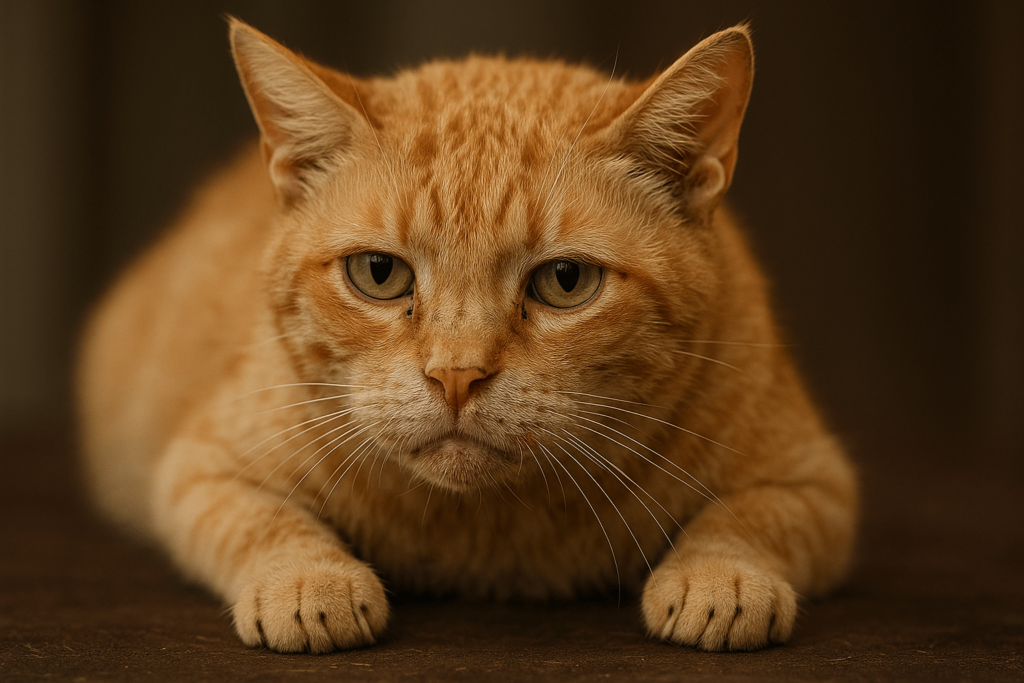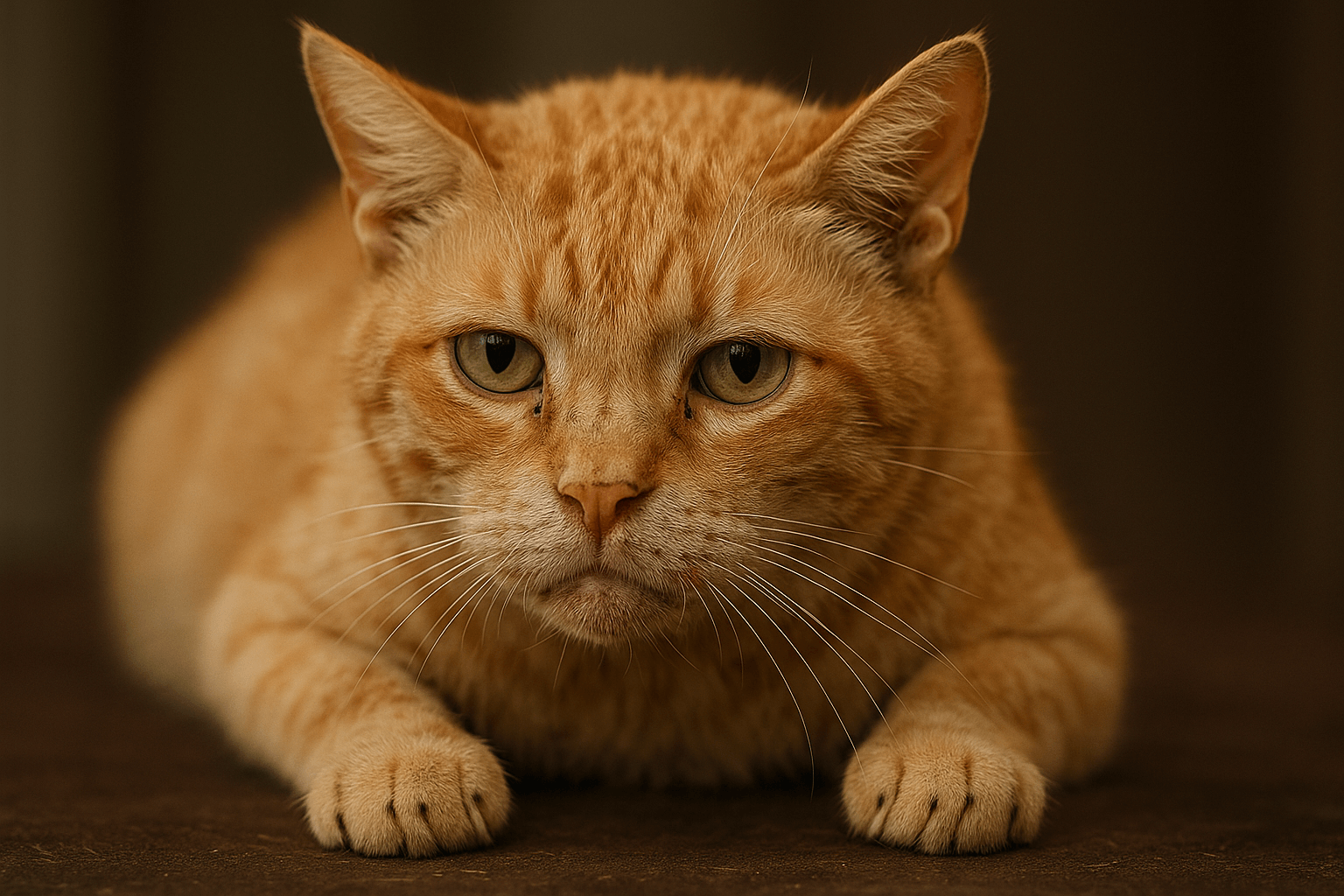FIV in Cats: What You Need to Know
Feline Immunodeficiency Virus (FIV) is a condition that affects cats worldwide, often sparking concern among pet owners. Similar to HIV in humans, FIV weakens a cat’s immune system, making them more vulnerable to infections and illnesses. However, with proper care and understanding, cats diagnosed with FIV can live happy, fulfilling lives. This blog post explores the causes, symptoms, and management of FIV, providing valuable insights for cat owners. Whether you’re a seasoned feline enthusiast or a new cat parent, understanding FIV is crucial for ensuring your furry friend’s well-being.
Understanding FIV: Causes and Transmission
FIV is caused by a retrovirus that attacks a cat’s immune system, leaving them susceptible to secondary infections. Understanding how FIV spreads is key to preventing its transmission and protecting other cats in your household.
Bite Wounds Are the Primary Mode of Transmission:
FIV is most commonly spread through deep bite wounds, often occurring during aggressive fights between cats.Rare Transmission Through Casual Contact:
Unlike some viruses, FIV is not easily transmitted through shared food bowls, grooming, or casual contact.Mother-to-Kitten Transmission Is Uncommon but Possible:
While rare, infected mother cats can pass the virus to their kittens during pregnancy, birth, or nursing.Outdoor Cats Are at Higher Risk:
Cats allowed outdoors are more likely to encounter aggressive or stray cats, increasing their risk of exposure to FIV.No Evidence of Human Transmission:
FIV cannot be transmitted to humans or other non-feline pets, ensuring safety for families with diverse pets.
By understanding these transmission factors, cat owners can take proactive steps to minimize the risk of FIV spreading within their homes.

Recognizing Symptoms of FIV in Cats
FIV progresses slowly, and symptoms may not appear immediately after infection. Early detection and intervention are essential for managing the condition effectively.
Recurrent Infections:
Cats with FIV often experience frequent respiratory, skin, or urinary tract infections due to their weakened immune systems.Weight Loss and Poor Appetite:
A noticeable decline in appetite and unexplained weight loss can indicate underlying health issues caused by FIV.Lethargy and Fatigue:
Infected cats may exhibit low energy levels and spend more time sleeping than usual.Swollen Lymph Nodes:
Enlarged lymph nodes are a common early sign of FIV as the body attempts to fight off the virus.Changes in Coat Condition:
Dull, dry, or patchy fur may signal poor overall health linked to FIV.
Being vigilant about these symptoms allows you to seek veterinary care promptly, improving your cat’s quality of life.
Check this guide 👉Hypercalcemia in Cats: Best 7 Expert Tips!
Check this guide 👉Understanding Panleukopenia in Cats: Best 7 Expert Tips!
Check this guide 👉Understanding Facial Alopecia in Cats: Best 7 Expert Tips!
Preventing FIV in Cats | Managing an FIV-Positive Cat |
|---|---|
Keep cats indoors to avoid fights | Schedule regular vet check-ups |
Neuter or spay to reduce aggression | Provide a balanced, nutrient-rich diet |
Test new cats before introducing them | Minimize stress in the home environment |
Vaccinate against other preventable diseases | Watch for signs of secondary infections |
Separate FIV-positive cats from others | Offer plenty of rest and comfort |
How to Support an FIV-Positive Cat
Caring for a cat with FIV requires patience, dedication, and a focus on maintaining their overall health. These strategies can help you provide the best possible care for your feline companion.
Prioritize Regular Veterinary Visits:
Routine check-ups allow your vet to monitor your cat’s condition and catch potential issues early.Provide a Stress-Free Environment:
Reduce stressors like loud noises or sudden changes to create a calming atmosphere for your cat.Feed a High-Quality Diet:
Nutrient-dense food supports your cat’s immune system and helps them maintain a healthy weight.Keep Them Indoors:
Limiting outdoor access protects FIV-positive cats from exposure to additional risks, such as injuries or illnesses.Monitor for Behavioral Changes:
Subtle shifts in behavior can signal discomfort or the onset of secondary infections. Address concerns promptly.
With attentive care, FIV-positive cats can enjoy long, happy lives despite their diagnosis.
Debunking Common Myths About FIV
Misinformation about FIV often leads to unnecessary fear and stigma. Separating fact from fiction helps foster better understanding and compassion for affected cats.
Myth: FIV Is Highly Contagious Among Cats:
Fact: FIV is difficult to transmit unless there’s aggressive biting, making casual contact safe.Myth: FIV-Positive Cats Must Be Euthanized:
Fact: Many FIV-positive cats live normal lifespans with proper care and attention.Myth: FIV Can Be Transmitted to Humans or Dogs:
Fact: FIV is species-specific and poses no threat to humans or non-feline pets.Myth: All Outdoor Cats Have FIV:
Fact: While outdoor cats are at higher risk, not all outdoor cats contract the virus.Myth: There’s No Point in Treating Secondary Infections:
Fact: With timely treatment, secondary infections can be managed effectively, improving the cat’s quality of life.
Dispelling these myths promotes a more informed and compassionate approach to caring for FIV-positive cats.
How to Prevent FIV in Multi-Cat Households
For households with multiple cats, preventing the spread of FIV requires careful planning and management. These tips can help safeguard your feline family members.
Separate New Additions Initially:
Quarantine new cats until they’ve been tested for FIV and other contagious conditions.Neuter or Spay All Cats:
Altered cats are less likely to engage in aggressive behaviors that could lead to FIV transmission.Provide Individual Resources:
Ensure each cat has their own food bowls, litter boxes, and resting areas to minimize conflict.Supervise Interactions Between Cats:
Monitor playtime closely to prevent fights and intervene if necessary.Maintain a Clean Environment:
Regular cleaning reduces the risk of spreading infections, benefiting all cats in the home.
Taking these precautions fosters harmony while protecting your cats from FIV.
The Role of Vaccination in FIV Prevention
Vaccination plays a controversial yet important role in managing FIV risk. Understanding its benefits and limitations helps you decide what’s best for your cat.
Vaccines Reduce Transmission Risk:
Vaccinated cats are less likely to contract FIV, even if exposed to infected animals.Not All Countries Offer the Vaccine:
Availability varies globally, so consult your vet about options in your area.Vaccinated Cats May Test Positive:
Vaccination can cause false positives on standard FIV tests, complicating diagnosis.Indoor-Only Cats May Not Need It:
Low-risk cats may not benefit significantly from vaccination, depending on their lifestyle.Discuss Risks and Benefits with Your Vet:
Personalized advice ensures you make the right choice for your cat’s unique needs.
Vaccination is a valuable tool but should be considered carefully based on individual circumstances.
Supporting Adoption of FIV-Positive Cats
Adopting an FIV-positive cat is a rewarding way to give a deserving animal a second chance. Here’s how you can support and encourage adoption efforts.
Educate Others About FIV:
Share accurate information to dispel myths and reduce stigma surrounding FIV-positive cats.Volunteer at Shelters:
Offer your time to care for FIV-positive cats awaiting adoption, helping them stay healthy and socialized.Advocate for Special Needs Cats:
Highlight the joys of adopting special needs pets through social media or community events.Provide Foster Care:
Temporary fostering prepares FIV-positive cats for permanent homes while giving them stability.Donate Supplies or Funds:
Shelters rely on donations to care for FIV-positive cats, including food, medications, and enrichment items.
By supporting these initiatives, you contribute to creating a brighter future for FIV-positive cats everywhere.
Frequently Asked Questions About FIV in Cats
Can FIV-positive cats live with other cats?
Yes, as long as there’s no aggression or fighting, FIV-positive cats can coexist safely with non-infected cats.
Is there a cure for FIV?
Currently, there’s no cure for FIV, but supportive care can manage symptoms and improve quality of life.
How is FIV diagnosed?
A simple blood test performed by a veterinarian can detect FIV antibodies in a cat’s system.
What should I feed an FIV-positive cat?
A high-quality, protein-rich diet supports immune function and overall health. Avoid raw foods to reduce infection risks.
Can kittens outgrow FIV?
Some kittens test positive due to maternal antibodies, which may clear as they age. Retesting after six months confirms their status.
Empowering Owners to Care for FIV-Positive Cats
While an FIV diagnosis can feel overwhelming, it doesn’t have to define your cat’s future. With knowledge, vigilance, and compassion, you can provide a loving home where your FIV-positive cat thrives. By focusing on prevention, early detection, and consistent care, you play a vital role in ensuring your feline friend enjoys a happy, healthy life. Remember, every cat deserves love and respect—regardless of their health status—and your dedication makes all the difference.
Canned Pumpkin for Cat Diarrhea: Best 7 Expert Tips! Natural remedy to firm stools, soothe upset bellies, and support gut health safely.
Can a Cat Give You Scabies? Best 7 Expert Tips! Discover the truth about feline mites, human skin risks, and how to protect yourself—without panic.
Cat Flea vs Human Flea: Best 7 Expert Tips! Discover the truth about bites, species, and how to eliminate infestations for good.
Weird Cat Behaviors: Best 7 Expert Tips! Discover why cats do strange things—and how to understand, not punish, their instincts for a happier home.





